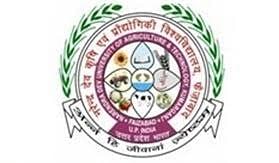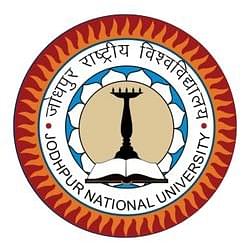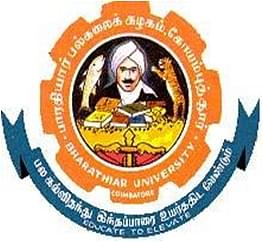Exploring a Ph.D. in
Psychology: Top 10 Questions Answered
Pursuing Ph.D. in Psychology is a significant
commitment, but it offers deep insights into human behavior, advanced research
skills, and opportunities for academic and clinical careers. This blog
addresses ten common questions prospective students have about a Ph.D. in
Psychology, providing a comprehensive understanding of what to expect.
1. What is a Ph.D. in Psychology?
A Ph.D. in Psychology Haryana is an
advanced academic degree focusing on the scientific study of behaviour, brain
function, and mental processes. It involves rigorous coursework, comprehensive
exams, and original research culminating in a dissertation. The program
prepares students for careers in academia, research, clinical practice, and
other professional settings.
2. What are the specializations available in
a Ph.D. in Psychology?
Ph.D. programs in Psychology offer various
specializations to align with students' interests and career goals. Common
specializations include:
Clinical Psychology: Focuses on diagnosing
and treating mental disorders.
Cognitive Psychology: Studies mental
processes such as memory, perception, and problem-solving.
Developmental Psychology: Examines
psychological growth throughout the lifespan.
Social Psychology: Explores how individuals
influence and are influenced by others.
Neuropsychology: Investigates the
relationship between brain function and behavior.
Industrial-Organizational Psychology: Applies
psychological principles to workplace issues.
3. What are the admission requirements for a
Ph.D. in Psychology?
Admission to a Ph.D. program in Psychology is
highly competitive and typically requires:
Bachelor’s/Master’s Degree: A degree in
psychology or a related field.
Academic Transcripts: Demonstrating a strong
academic record.
GRE Scores: Some programs require the
Graduate Record Examination.
Letters of Recommendation: From professors or
professionals familiar with the applicant’s academic and research abilities.
Personal Statement: Explaining research
interests and career goals.
Research Experience: Demonstrated through
previous projects, publications, or presentations.
4. How long does it take to complete a Ph.D.
in Psychology?
A Ph.D. in Psychology Haryana
generally takes between 5 to 7 years to complete. The duration depends on
various factors, including the student's research topic, progress on the
dissertation, and program requirements. The timeline typically includes 2-3
years of coursework followed by comprehensive exams and 2-4 years of
dissertation research.
5. What is the difference between a Ph.D. and
a Psy.D. in Psychology?
A Ph.D. (Doctor of Philosophy) in Psychology
emphasizes research and academic scholarship, preparing graduates for careers
in research and academia. A Psy.D. (Doctor of Psychology), on the other hand,
focuses on clinical practice and is designed for those seeking careers as
practicing psychologists. While both degrees require clinical training, the
Ph.D. places a heavier emphasis on research.
6. What career opportunities are available
after earning a Ph.D. in Psychology?
Graduates with a Ph.D. in Psychology have
diverse career opportunities, including:
Academia: As professors and researchers in
universities.
Clinical Practice: As licensed psychologists
in hospitals, private practice, or mental health clinics.
Research: Conducting research in governmental
or private research organizations.
Consulting: Providing expertise to
businesses, educational institutions, or government agencies.
Health Services: Working in health
psychology, neuropsychology, or rehabilitation psychology.
7. How much can one earn with a Ph.D. in
Psychology?
Salaries for individuals with a Ph.D. in
Psychology vary widely based on specialization, geographic location, and type
of employment. According to the Bureau of Labor Statistics, the median annual
wage for psychologists was approximately $80,000 in 2020, with potential for
higher earnings in academia, private practice, and specialized fields like
neuropsychology.
8. What does the curriculum for a Ph.D. in
Psychology typically include?
The curriculum for Ph.D. in Psychology Haryana generally includes:
Core Courses: Covering fundamental topics
such as advanced statistics, research methods, psychological theory, and
ethics.
Specialization Courses: Focused on the
student’s chosen area of interest.
Practicum/Internship: Providing hands-on
clinical training or research experience.
Comprehensive Exams: Assessing the student’s
mastery of the field.
Dissertation Research: An original research
project that contributes to the body of knowledge in psychology.
9. How important is research experience for
admission to a Ph.D. program in Psychology?
Research experience is crucial for admission
to a Ph.D. program in Psychology. Admissions committees look for
candidates who have demonstrated the ability to conduct independent research,
as this is a significant component of the Ph.D. program. Prior research
experience, such as working as a research assistant, publishing papers, or
presenting at conferences, strengthens an application.
10. What is the role of a dissertation in a
Ph.D. program in Psychology?
The dissertation is a cornerstone of the
Ph.D. program in Psychology. It involves conducting original research that
contributes new knowledge to the field. The process includes:
Proposal: Developing a detailed research proposal outlining the research
questions, methodology, and significance of the study.
Research: Collecting and analyzing data, often involving experiments, surveys,
or case studies.
Writing: Documenting the research findings in a comprehensive dissertation
manuscript.
Defense: Presenting and defending the research before a committee of faculty
members.
The dissertation process not only advances
the field of psychology but also hones the student’s skills in critical
thinking, research design, and scientific communication.
Conclusion
Pursuing Ph.D. in Psychology Haryana
is a challenging but rewarding journey that opens doors to various career paths
in academia, research, and clinical practice. Understanding the admission
requirements, program structure, and career opportunities can help prospective
students make informed decisions about their educational and professional
futures. With dedication and passion, a Ph.D. in Psychology can lead to a
fulfilling career contributing to the understanding and improvement of human
behavior and mental health.












